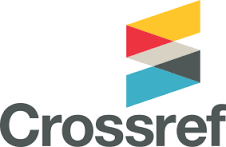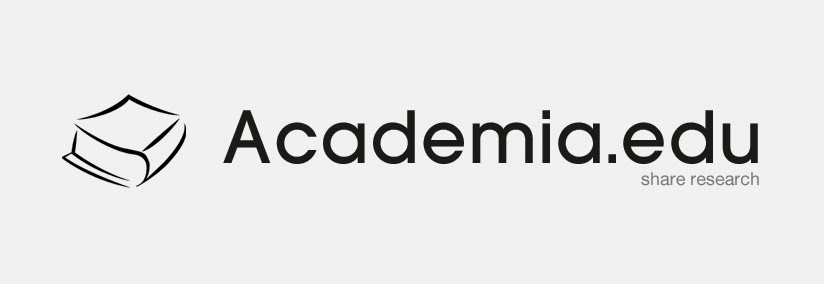Public Service Motivation: Can Remuneration Increase Job Satisfaction and Performance in Organization Sector Public?
Abstract
This study examines the effect of public service motivation and remuneration on job satisfaction and employee performance. The study also examines whether remuneration will moderate the relationship between public service motivation with job satisfaction and performance based on crowding out the theory. This study investigates whether extrinsic motivation in remuneration will reduce intrinsic motivation (public service motivation). Data collection and sampling: The data for this research was collected from primary sources. Data was collected by distributing the questionnaires to the employee in Office Tax in Daerah Istimewa Yogyakarta. The study has used the partial least square (PLS) approach to analyze the data. The study has used PLS due to its ability to examine the causal relationship between the variables. At the same time, it deals with the constructs and measurement items, thus making it a feasible option to use. Research results prove that public service motivation and remuneration positively influences work satisfaction and performance. Public service motivation and remuneration influences performance mediated satisfaction. Payment does not moderate relationship motivation to satisfaction because that p-value has lower than the required. Remuneration policy weakens influence public service motivation to dignity. However, the path coefficient is worth negative. So with a policy, applicable remuneration now precisely cut influence job satisfaction, which could lower performance. Theory crowding-out show that gift remuneration as award extrinsic to increase job satisfaction and performance of employees government.
Keywords
Full Text:
PDFReferences
Abdalaziz, A. S. E., Azam, S. M. F., & Albattat, A. R. (2021). Organizational Commitment And Job Satisfaction Towards Employee Performance Among Libyan Banks: Literature Review. Psychology and Education Journal, 58(4).
Adam, F., & Kamase, J. (2019). The effect competence and motivation to satisfaction and performance. International Journal of Scientific and Technology Research, 8(3).
Agwu, M. (2013). Impact of Fair Reward System on Employees Job Performance in Nigerian Agip Oil Company Limited Port-Harcourt. British Journal of Education, Society & Behavioural Science, 3(1). https://doi.org/10.9734/bjesbs/2013/2529
Ahmed Khamis Al Naqbi, R., Dr. Rosman Bin Md Yusoff, P., & Fadillah Binti Ismail, D. (2018). The Effect of Incentive System on Job Performance Motivation as Mediator for Public Sector Organization in Uae. International Journal of Engineering & Technology, 7(4.7). https://doi.org/10.14419/ijet.v7i4.7.23034
Alonso, P., & Lewis, G. B. (2001). Public Service Motivation and Job Performance: Evidence from the Federal Sector. American Review of Public Administration, 31(4). https://doi.org/10.1177/02750740122064992
Aryee, S., Budhwar, P. S., & Chen, Z. X. (2002). Trust as a mediator of the relationship between organizational justice and work outcomes. Journal of Organizational Behavior, 23(3), 267–285. https://doi.org/10.1016/B978-1-4557-4815-0.00018-0
Basheer, M. F., Ahmad, A. A., & Hassan, S. G. (2019). Impact of economic and financial factors on tax revenue: Evidence from the middle east countries. Accounting, 5(2). https://doi.org/10.5267/j.ac.2018.8.001
Belle, N., & Cantarelli, P. (2015). Monetary Incentives, Motivation, and Job Effort in the Public Sector: An Experimental Study With Italian Government Executives. Review of Public Personnel Administration, 35(2). https://doi.org/10.1177/0734371X13520460
Bøgh Andersen, L., & Serritzlew, S. (2012). Does Public Service Motivation Affect the Behavior of Professionals? International Journal of Public Administration, 35(1). https://doi.org/10.1080/01900692.2011.635277
Boyd, N. M., & Nowell, B. (2017). Testing A Theory Of Sense Of Community And Community Responsibility In Organizations: An Empirical Assessment Of Predictive Capacity On Employee Well-Being And Organizational Citizenship. Journal of Community Psychology, 45(2). https://doi.org/10.1002/jcop.21843
Boyd, N., Nowell, B., Yang, Z., & Hano, M. C. (2018). Sense of Community, Sense of Community Responsibility, and Public Service Motivation as Predictors of Employee Well-Being and Engagement in Public Service Organizations. American Review of Public Administration, 48(5). https://doi.org/10.1177/0275074017692875
Bright, L. (2007). Does Person-Organization Fit Mediate the Relationship Between Public Service Motivation and the Job Performance of Public Employees? Review of Public Personnel Administration, 27(4). https://doi.org/10.1177/0734371X07307149
Bullock, J. B., Stritch, J. M., & Rainey, H. G. (2015). International comparison of public and private employees' work motives, attitudes, and perceived rewards. Public Administration Review, 75(3). https://doi.org/10.1111/puar.12356
Campbell, J. P. (1990). Modeling the performance prediction problem in industrial and organizational psychology. In Handbook of Industrial and Organizational Psychology.
Cho, Y. J., & Perry, J. L. (2012). Intrinsic Motivation and Employee Attitudes: Role of Managerial Trustworthiness, Goal Directedness, and Extrinsic Reward Expectancy. Review of Public Personnel Administration, 32(4). https://doi.org/10.1177/0734371X11421495
Corduneanu, R., Dudau, A., & Kominis, G. (2020). Crowding-in or crowding-out: the contribution of self-determination theory to public service motivation. Public Management Review, 22(7). https://doi.org/10.1080/14719037.2020.1740303
Deci, E. L., Ryan, R. M., & Koestner, R. (1999). A meta-analytic review of experiments examining the effects of extrinsic rewards on intrinsic motivation. In Psychological Bulletin (Vol. 125, Issue 6). https://doi.org/10.1037/0033-2909.125.6.627
Dur, R., & Zoutenbier, R. (2014). Working for a good cause. Public Administration Review, 74(2). https://doi.org/10.1111/puar.12183
Edmans, A. (2011). Does the stock market fully value intangibles? Employee satisfaction and equity prices. Journal of Financial Economics, 101(3). https://doi.org/10.1016/j.jfineco.2011.03.021
Frank, S. A., & Lewis, G. S. (2004). Government Employees: Working Hard or Hardly Working? American Review of Public Administration, 34(1). https://doi.org/10.1177/0275074003258823
Frey, B. S., & Oberholzer-Gee, F. (1997). The Cost of Price Incentives: An Empirical Analysis of Motivation Crowding-Out. American Economic Review, 87(4). https://doi.org/10.2307/2951373
Gagné, M., & Forest, J. (2008). The study of compensation systems through the lens of self-determination theory: Reconciling 35 years of debate. Canadian Psychology, 49(3). https://doi.org/10.1037/a0012757
Gan, K. P., Lin, Y., & Wang, Q. (2020). Public Service Motivation and Turnover Intention: Testing the Mediating Effects of Job Attitudes. Frontiers in Psychology, 11. https://doi.org/10.3389/fpsyg.2020.01289
Georgellis, Y., & Tabvuma, V. (2010). Does public service motivation adapt? Kyklos, 63(2). https://doi.org/10.1111/j.1467-6435.2010.00468.x
Ghozali, I., & Ratmono, D. (2017). Analisis Multivariat dan Ekonometrika dengan Eviews 10. In Semarang: Badan Penerbit Universitas Diponegoro.
Gruman, J. A., & Saks, A. M. (2011). Performance management and employee engagement. Human Resource Management Review, 21(2). https://doi.org/10.1016/j.hrmr.2010.09.004
Hafiza, N. S., Shah, S. S., & Jamsheed, H. (2011). Relationship between Rewards and Employee's Motivation in the Non-Profit Organizations of Pakistan. Business Intelligence Journal, 4(12).
Hartono, J. (2015). Konsep dan Aplikasi Structural Equation Modeling (SEM) Berbasis Varian dalam Penelitian Bisnis. Public Administration Review, 63(5).
Hennig-Schmidt, H., Selten, R., & Wiesen, D. (2011). How payment systems affect physicians' provision behaviour-An experimental investigation. Journal of Health Economics, 30(4). https://doi.org/10.1016/j.jhealeco.2011.05.001
Hermawan, W., Sedarmayanti, S., Jubaedah, E., & Mulyaningsih, M. (2020). IMPLIKASI IKLIM ORGANISASI, MUTASI DAN KEPUASAN KERJA TERHADAP KINERJA PEGAWAI DI BKPSDM KABUPATEN SUBANG. Jurnal Ilmu Administrasi: Media Pengembangan Ilmu Dan Praktek Administrasi, 17(2). https://doi.org/10.31113/jia.v17i2.578
Imran, A., Ahmad, S., Nisar, A., & Ahmad, U. (2014). Exploring Relationship among Rewards, Recognition and Employees' Job Satisfaction: A Descriptive Study on Libraries in Pakistan. Middle-East Journal of Scientific Research, 21(9).
Javed, M. A., & Basheer, M. F. (2017). Impact of External Factors on Bank Profitability. EPRA International Journal of Research and Development (IJRD), 2(5).
Jin, R. Q., & Rainey, H. G. (2020). Positive in Public Service: Government Personnel, Constrained Incentives, and Positive Work Attitudes. International Public Management Journal, 23(1). https://doi.org/10.1080/10967494.2019.1602572
Katebi, A., HajiZadeh, M. H., Bordbar, A., & Salehi, A. M. (2022). The Relationship Between "Job Satisfaction" and "Job Performance": A Meta-analysis. Global Journal of Flexible Systems Management, 23(1). https://doi.org/10.1007/s40171-021-00280-y
Khan, M., Daniyal, M., & Ashraf, M. Z. (2020). The Relationship Between Monetary Incentvies and Job Performance: Mediating Role of Employee Loyalty. Educational Research (IJMCER), 2(6), 12–20. https://www.researchgate.net/publication/347910870
Lah, T. J., & Perry, J. L. (2008). The Diffusion of the Civil Service Reform Act of 1978 in OECD Countries: A Tale of Two Paths to Reform. Review of Public Personnel Administration, 28(3). https://doi.org/10.1177/0734371X08319950
Langford, D., Fellows, R. F., Hancock, M. R., & Gale, A. W. (2020). Organizational behaviour. In Human Resources Management in Construction. https://doi.org/10.4324/9781315844695-9
Lantara, I. W. A. (2019). Pengaruh Motivasi Kerja Terhadap Kinerja Karyawan Dengan Kepuasan Kerja Sebagai Variabel Intervening Di Pt. Indonesia Tourism Development Corporation (ITDC). Jurnal Pendidikan Ekonomi Undiksha, 10(1). https://doi.org/10.23887/jjpe.v10i1.20122
Lee, S. (2020). Intrinsic Incentives: A Field Experiment on Leveraging Intrinsic Motivation in Public Service Delivery. SSRN Electronic Journal. https://doi.org/10.2139/ssrn.3537336
Miller, K. A., Deci, E. L., & Ryan, R. M. (1988). Intrinsic Motivation and Self-Determination in Human Behavior. Contemporary Sociology, 17(2). https://doi.org/10.2307/2070638
Moleong, L. J. (2016). Buku Metodologi Penelitian Kuantitatif. Remaja Rosdakarya, 1(1).
Muindi, F., & K' obonyo, P. (2015). Quality Of Work Life, Personality, Job Satisfaction, Competence, And Job Performance: A Critical Review Of Literature. European Scientific Journal, 1111(2626).
Mustapa, A. N., & Mahmood, R. (2016). The Effects of Public Service Motivation on Job Performance : Myth or Reality ? Journal of Management Studies, 2(7).
Nabawi, R. (2019). Pengaruh Lingkungan Kerja, Kepuasan Kerja dan Beban Kerja Terhadap Kinerja Pegawai. Maneggio: Jurnal Ilmiah Magister Manajemen, 2(2), 170–183. https://doi.org/10.30596/maneggio.v2i2.3667
Osa, I. G. (2014). Monetary Incentives Motivates Employee's On Organizational Performance. Arts Humanities and Social Sciences, 2(7).
Pandey, C., & Khare, R. (2012). Impact of job satisfaction and organizational commitment on employee loyalty. International Journal of Social Science & Interdisciplinary Research, 1(8).
Perry, J. L., & Wise, L. R. (1990). The Motivational Bases of Public Service. Public Administration Review, 50(3). https://doi.org/10.2307/976618
Phuong, T. T. K., & Vinh, T. T. (2020). Job satisfaction, employee loyalty and job performance in the hospitality industry: A moderated model. Asian Economic and Financial Review, 10(6). https://doi.org/10.18488/journal.aefr.2020.106.698.713
Ponta, L., Delfino, F., & Cainarca, G. C. (2020). The role of monetary incentives: Bonus and/or stimulus. Administrative Sciences, 10(1). https://doi.org/10.3390/admsci10010008
Prasetyo, A. (2019). EFEK MEDIASI KEPUASAN KERJA PADA PENGARUH PRAKTEK SUMBER DAYA MANUSIA TERHADAP KINERJA KARYAWAN. Equator Journal of Management and Entrepreneurship (EJME), 7(4). https://doi.org/10.26418/ejme.v7i4.32889
San, O. T., Theen, Y. M., & Heng, T. B. (2012). The Reward Strategy and Performance Measurement ( Evidence from Malaysian Insurance Companies ). International Journal of Business, Humanities and Technology, 2(1).
Sitompul, H. F., & Muslih, M. (2020). Pengaruh Tata Kelola Perusahaan, Remunerasi Direksi, Dan Ukuran Perusahaan Terhadap Kinerja Perusahaan Dimoderasi Oleh Komite Audit Pada Bumn Bidang Keuangan Non Publik. Jurnal Kewirausahaan, Akuntansi, Dan Manajemen TRI BISNIS, 2(2).
Sukhumvito, J. P., Yuniawan, A., Kusumawardhani, A., & Udin, U. (2020). Public service motivation, work attitudes, and job performance: An empirical study. Quality - Access to Success, 21(175).
Tamunomiebi, M. D., & Oyibo, C. (2020). Work-Life Balance and Employee Performance: A Literature Review. European Journal of Business and Management Research, 5(2). https://doi.org/10.24018/ejbmr.2020.5.2.196
Tang, L. (2017). Public Service Motivation and Public Sector Incentive. 3rd International Conference on Economics, Social Science, Arts, Education and Management Engineering, 962–969. https://doi.org/10.2991/essaeme-17.2017.196
Voorberg, W., Jilke, S., Tummers, L., & Bekkers, V. (2018). Financial Rewards Do Not Stimulate Coproduction: Evidence from Two Experiments. Public Administration Review, 78(6). https://doi.org/10.1111/puar.12896
Wang, J., & Kim, T. Y. (2013). Proactive socialization behavior in China: The mediating role of perceived insider status and the moderating role of supervisors' traditionality. Journal of Organizational Behavior, 34(3). https://doi.org/10.1002/job.1811
Williams, P., McDonald, P., & Mayes, R. (2021). Recruitment in the gig economy: attraction and selection on digital platforms. International Journal of Human Resource Management, 32(19). https://doi.org/10.1080/09585192.2020.1867613
Wright, B. E., Moynihan, D. P., & Pandey, S. K. (2012). Pulling the Levers: Transformational Leadership, Public Service Motivation, and Mission Valence. Public Administration Review, 72(2). https://doi.org/10.1111/j.1540-6210.2011.02496.x
Wynia, M. K. (2009). The risks of rewards in health care: How pay-for-performance could threaten, or bolster, medical professionalism. In Journal of General Internal Medicine (Vol. 24, Issue 7). https://doi.org/10.1007/s11606-009-0984-y
Yang, K., & Holzer, M. (2006). The performance-trust link: Implications for performance measurement. Public Administration Review, 66(1). https://doi.org/10.1111/j.1540-6210.2006.00560.x
Yanti, M. (2012). Public service motivation and job satisfaction in Jambi, Indonesia. In ProQuest Dissertations and Theses.
DOI: https://doi.org/10.21107/mediatrend.v17i1.13800
Copyright (c) 2022 Media Trend


















